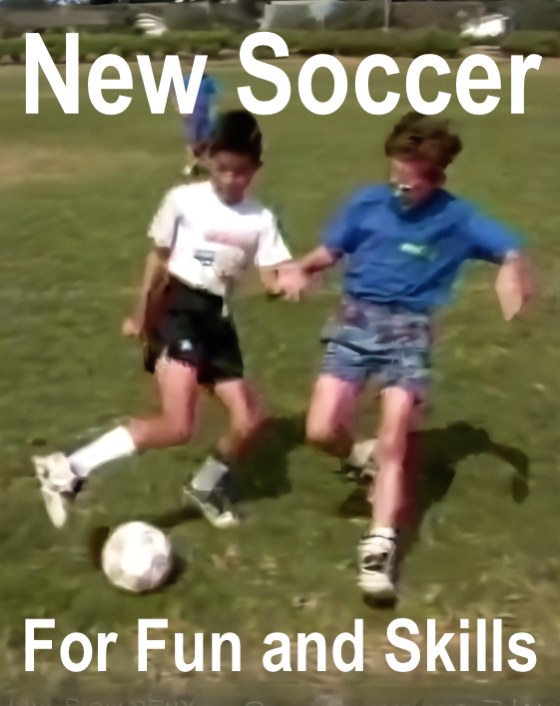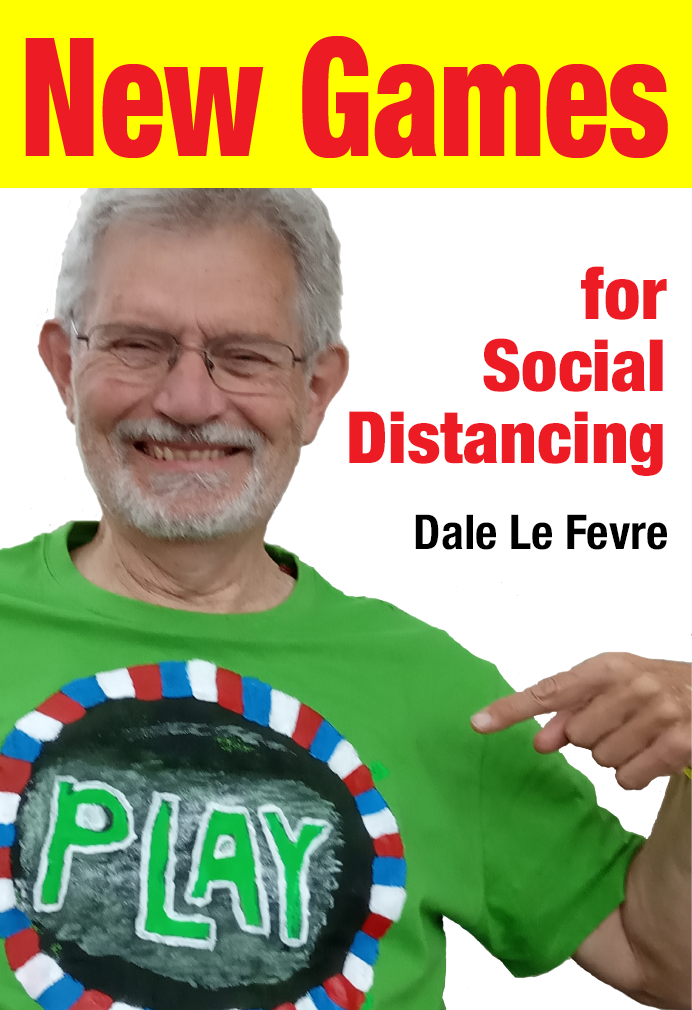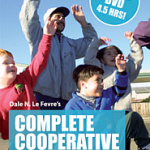New Games for Staying In, best of the best showdown!
For many people around the world, lockdown is beginning to ease (in other parts the virus is still building or has returned for a second wave), so in this final week of lockdown games, we are looking for the best of your favorites from the last four weeks.
As always, adapt games to the rules that apply where you are. Adapting games is part of New Games, we are always inclusive to the capabilities of people in the group and to the environment and we seek creative solutions to any issues or limitations that we are presented with.
After you’ve tried these games, vote for your favorites at the bottom of this page. That will get us a winner!
Whereas in previous weeks we started out with games for two people and then moved on to slightly larger groups, this time they are mixed up, just play what you can.
My Aunt Comes From …
(5 to 50+ players, moderate activity)
Leader starts by saying to group, “My aunt (uncle, cousin, any relation or friend) comes from Wisconsin (or any other place you can think of in the universe) and she walks like this.” Leader proceeds to demonstrate an exaggerated “walk” that the whole group copies for at least 10 seconds. Any unusual movement will do, as long as others can do it, too. Then anyone can clap, go to the front of the group, and show a new “walk” of one of their relatives. This is one way to energize walks and make them fun.
I remember one time I was doing this walking down a small street with a group in Germany, and a police car came up from a side street. The police were quite surprised and we all had a laugh – but we kept the ‘walk’ up.
This can be done with as few as 2 people.
Why? Because
(2 – 35 players, low activity)
Everyone needs a sheet of paper and pencil. Tear paper in 2 pieces. On one, write a question you would like answered that begins with “Why”. It does not have to be sensible, but can be silly. On the other piece of paper, write an “answer” to your question. It can be completely unrelated to your question. Collect all the questions and answers, keeping them separate. Mix up the questions and pass them out. Do the same for answers. If someone gets actual answer to the question, have her exchange. Then have each person in turn read their question and answer out loud.
For 2 people: Just exchange answers and read out loud the questions with the new answers.
This is on my Best Cooperative Games download/DVD, click to purchase.
Trust Walk
(2 – 30+ players, low activity)
Players form pairs. One person is blindfolded or keeps their eyes closed while being carefully lead around by their partner. The person leading looks out for objects that could hurt the blinded person when bringing them to different places, having them touch or smell various objects to notice different textures. linked person tries to simply experience the objects and textures as they are without naming them.
In The Manner of the Adverb
(2 – 50 players, moderately active)
One (or several) player(s) go out of earshot while the person (or group) chooses an adverb, (a word describing a verb, like “He ran dizzily.”). The guesser(s) return and give the group a verb that they must do in the manner of the adverb that the group has chosen. Based on what they see, the guesser(s) tries to guess the adverb. If wrong, guessers give another verb and try again. Normally this is done with a group, but can be done with as few as two people. Distancing is not a problem in any case, since players do not have to be close to do this game.
This is on my Best of New Games download/DVD, click to purchase.
I Have A Friend Who …
(5 – 50 players, moderately active)
A circle game. There is one less chair (or place marker) than number of people playing. One person standing in the middle says “I have a friend who (for example) wears tennis shoes.” People wearing tennis shoes get up and switch chairs or place markers with each other. (You can’t sit in the same chair you just sat in, or can’t go back to the same place marker). The person left standing (who has no chair/marker) is the next leader. Other examples are: I have a friend who: plays basketball; has two brothers; has a birthday in July; is wearing red, was born in this town; is alive (if everyone doesn’t move for this one, we might have a problem).
This is on my Best Cooperative Games download/DVD, click to purchase.
Group Juggle
(5 – 25 players, moderate activity)
This is a circle game. Everyone has their hands in front of them, waiting for a ball to be passed. The leader starts by passing to one person, who then throws to another person who has their hands up. After passing the ball, a player puts their hands down. The pattern ends when everyone has had the ball and it returns to the leader. Each player must remember who passed the ball to them and who they passed it to. Repeat cycle, add a ball, two, more. See how many you can add. Variations include going in reverse and going to the spot of the person you’ve just thrown to, or even moving randomly around the area. It is possible to do this with as few as 2 people, but it gets difficult very quickly when adding more balls.
This is on my Cooperative New Games Leadership download/DVD, click to purchase.
Make 11
(2 to 50+ players in groups of 2 or 3, low activity)
Group members face each other and at the count of 3, put out one hand with a number of fingers extended, trying to reach a total of 11. (Naturally, with 2 people, you use both hands.) They repeat this until they get it. Then, using both hands, they repeat, trying to total 21. (Or with just two people, some other number under 20.)
This is on my Best of Cooperative Games download/DVD, click to purchase.
No Teeth
(5-10 players, low activity)
Players hide their teeth with their lips while speaking. Each player chooses a card with the name of a fruit or vegetable on it. The first player starts by saying to another player, with their teeth covering their lips, “I don’t have any fruit (or whatever food is on the other player’s card), could I have your apple?” to which the person with the ‘apple’ says something like “Why yes you can have my apple,” and gives the asking person the ‘apple’ card.
Then the person who has just passed their card says to another “I don’t have any fruit or vegetable, could I have your (name’s the fruit or veg that the other player has)?” To which the player with the fruit or veg replies in an affirmative sentence and passes their card over to the asking player. Th process repeats until someone shows their teeth while speaking, at which point everyone points at the player whose teeth have been exposed and says “Teeth, teeth, teeth!” After this, continue. If a player is having trouble keeping their teeth covered, after they have had the “Teeth, teeth, teeth!” chant, pass on to another player.
The object is to try to get someone to show teeth while speaking.
If you would like to know more about New Games and maybe learn more about how to use them, over my long career I’ve written books and make tutorial videos for you. There are many more fun, educational, therapeutic and community building games you can learn and implement in your group or workplace, so don’t be shy, check out my page of helpful tutorial products.
Vote for the games you liked best here .. drag them around until your favorite is at the top, then scroll for [OK] and [done]. This is the final week and this will get us an overall lockdown games winner, so be sure to contribute your experience and preference.
Create your own user feedback survey
And if you know any groups that would like a New Games session, or any organisation whose members would like to be trained to use New Games in their practice, or any conference or festival that could do with a New Games session .. get in touch.


 New Soccer
New Soccer New Fully Printed Earthball
New Fully Printed Earthball New Games For Social Distancing
New Games For Social Distancing Complete Cooperative New Games (DVDs or Downloads)
Complete Cooperative New Games (DVDs or Downloads)
Follow Us